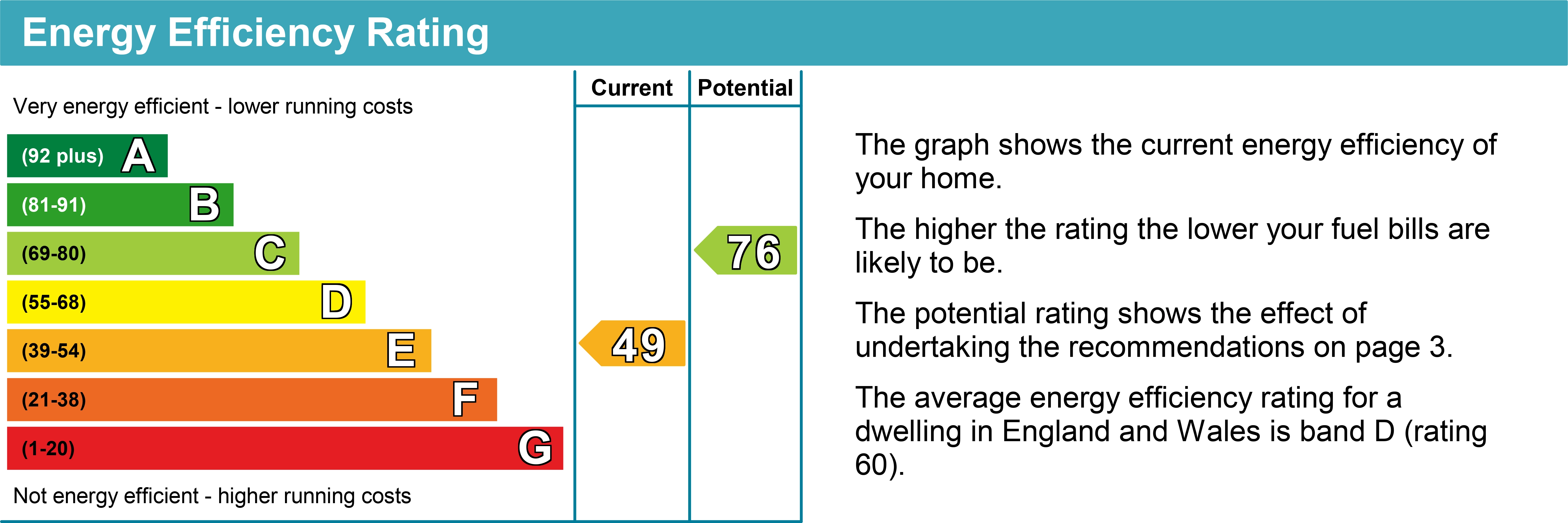Current Conversations About Low Carbon Energy Assessors
Selecting the right Low Carbon Energy Assessors can become a disheartening task. That's why I've put together this exhaustive blog post with these useful tips.
Choosing the right commercial EPC provider can be a daunting task. That's why it's important to register an exemption with the relevant authorities first. Make sure you meet all the requirements before registering, including having an active EPC plan and proof of insurance. Once you've registered your exemption, the provider can start working with you to develop a proposal that meets your specific needs. It's important to choose a provider that is qualified and experienced in commercial EPC – this will ensure success for your business. An EPC certificate will provide details on the current energy efficiency of your property. This may not always be as expected and may even be concerning if the results are very low on the scale. However, you shouldn’t panic if this is the case. The rating that the assessor has given the potential energy efficiency should give a clear indicator of what you can do to increase the energy efficiency of the property. From April 2023, UK landlords will not be able to grant or renew a policy for a tenant if their commercial property has an EPC (Energy Performance Certificate) rating of F or lower. Fines for continuing to let a property from April 2023 will amount to a minimum of £5,000, up to £150,000. Energy Performance Certificates (EPCs) are an instrument that contributes to the improvement of the overall buildings’ performance in a transparent and comparable way across Europe. EPCs were first introduced under the EPBD in 2002, and in 2010 the recast EPBD added a set of new requirements to improve the quality, usability and public acceptance of EPCs. Clarify if the EPC regulations apply to your building or lease. Whilst most commercial properties and lettings are affected, some are exempt e.g. listed buildings (provided that it can be established that the energy improvements would unacceptably alter their character or appearance) or properties that are let for less than 6 months or more than 99 years. Direct benefits associated with building certification schemes include: energy and CO2 emissions reductions and broader environmental benefits; increased public awareness of energy and environmental issues; lower costs for users; and improved data on buildings, which can be used for future policy development to further improve energy efficiency in the building stock.

To achieve the UK’s Net Zero Carbon target by 2050, the Government will be tightening the EPC regulations over the next few years in hopes that it will encourage enough investment to improve energy efficiency and better behaviours all-round. The price of energy is one of the key drivers of the cost-of-living crisis, so knowing what you can do to improve the energy rating of your home can save money in the short term. It also has the potential to make your property more desirable when you come to sell. The Operational Rating of an EPC is based on the amount of energy consumed over the 12 month period and is recorded through the provision of metering or utility bills of all of the services (electricity, gas, oil etc.). This information must be made available by the building owner in order for a DEC to be produced. A commercial property team can advise and support on engaging with existing occupants of properties where works need to be done, or ensuring that existing and/or new leases include relevant EPC provisions. Do your research about commercial epc before entering into any long term transactions.
All Building Types Covered
A Non-Domestic EPC shows the energy rating of a building. It indicates the energy efficiency of the building fabric and the heating, ventilation, cooling and lighting systems. The rating is compared with two benchmarks, one appropriate for new buildings and one appropriate for a similar existing building. To help you make the right choices when it comes to energy efficiency in your commercial building, we've put together a set of tips that will guide you through the process. From understanding the new legal standard to booking an EPC and enforcement and penalties, this blog has everything you need to get started on improving your property's energy performance. The UK Government website has a handy tool to find a list of your local accredited energy assessors. You can search either by postcode of the property requiring the EPC to get a list of all the assessors close by. Or if you know the name of an EPC assessor you can enter their name. If you choose the postcode option you will be shown a list of all the accredited energy assessors close to the postcode you entered. The list will include their contact details (Phone and email), their assessor ID and details of which accreditation scheme they are a member of or you can search by name. When a Non-Domestic Energy Assessor (NDEA) inspects a property, they look at the energy efficiency of different aspects of the building in relation to how they affect the entire building’s energy efficiency rating. They look at the size of the property, the age, type and the materials used to build it along with the lighting, ventilation, wall and loft insulation, windows and heating/air conditioning system. The inspection allows them to make recommendations in each of these areas to improve the building’s rating. An EPC is important for potential buyers as it gives information about the property’s general energy efficiency, how much energy it uses, and what energy costs are involved in the running of the property. The EPC also gives advice on how to improve the property’s energy efficiency, helping to further reduce energy costs. Maximising potential for mees isn't the same as meeting client requirements and expectations.
Energy-efficient buildings reduce indoor air pollution because they offer cleaner combustion and better ventilation than traditional buildings. And because they use less energy, they also curb outdoor pollution by reducing the fossil fuel pollution created by power generation. Reduction in indoor and outdoor air pollutants can decrease incidence of illnesses such as asthma and lung cancer, as well as lower the rate of premature deaths. The sort of client who cares about the energy efficiency of a home is the sort of tenant that most landlords will want to attract – while it may show the tenant has green credentials, it can also show that the tenant is considering their long term financial situation by gauging how expensive the bills may be. So, if a house has a good (or even average) EPC rating, it would be fair to say that there is an associated weighted factor of influence in terms of the occupant.A It is against the law to rent or sell a property without an EPC. Therefore, it is extremely important that your building has an EPC. If you are starting a new build project, make sure to book SAP or SBEM calculations at design stage. This is so that should the building fail to meet building regulation standards, our team can give you advice on how to improve. Landlords should be looking for a commercial building with at lease the minimum EPC rating of at least E or above. Purchasing a property with a lower EPC rating than E could lead to difficulties in leasing the property out with the new UK Law is enforced in April 2023. If you are an existing landlord, leases should be reviewed to check whether works can be carried out to improve the EPC rating and whether the costs of improvement can be passed to the tenant. Governments are increasingly legislating for reductions in greenhouse gas emissions due to the shift to sustainable building design to utilize energy more efficiently. It includes a requirement that a star rating system be used to construct the residential and commercial property. Consulting organizations provide energy evaluations to residential and commercial developments as verification and auditing service. A service such as a mees regulations is an invaluable asset in the heady world of business.
A Renewable Boost
A commercial EPC provides an energy rating for a building which is based on the performance potential of that building. Services such as lighting, heating and ventilation are taken into account as well as the way in which these services are controlled. The now industry standardized A – G energy rating given on the certificate will reflect the intrinsic energy performance standard of the building relative to a benchmark. This rating could then be used by potential buyers or tenants to make comparisons between properties. The Government's 'Green Deal' scheme started in February 2013 and EPC’s have changed as a result. The Green Deal is an initiative that enables you to borrow money to make energy-saving improvements to your home, which will be repaid through your gas and electricity bills. The Commercial Energy Performance Certificate allows the carbon footprint of different buildings to be compared accurately and gives the potential new occupier, landlord or tenant the ability to weigh up the utility burden the premises will place on them, should they take it on, through heating and lighting the building. For Public Buildings the certificate is the Display Energy Certificate (DEC) and this is available within the building for anyone to view. New commercial buildings are subject to the SAP Energy assessment and this procedure involves the Energy Surveyor working with the detailed floor plans and design specification. As of April 2018, minimum energy efficiency standards (MEES) are being demanded of domestic lettings – a property will have to be rated ‘E’ or above in order to be let out. If you let out your property when it does not meet the minimum standards, you could face a fine of up to £150,000, dependent on the value of the property. If you let out your property without a valid EPC, you could face a £200 fine. Importantly, make sure to discuss any proposals or contracts with the EPC provider in detail so there are no surprises later on down the line. Having a clear understanding of your needs and expectations will go a long way in ensuring a smooth and successful commercial energy project. Formulating opinions on matters such as epc commercial property can be a time consuming process.
With high fuel prices, it is even more important for tenants to know the EPC rating before moving into a new home. More energy efficient properties are warmer and can promote tenants’ health and wellbeing. They are cheaper to run which can promote longer tenancies and also reduce rent arrears. This situation creates a more stable rental income for the landlord. Before a building is put on the market the seller or landlord must commission an EPC for the building. A person acting on behalf of the seller or landlord must also be satisfied that an EPC has been commissioned for the building before marketing. Apart from listed buildings, every house needs to have a valid EPC before it can be sold. The EPC rating makes for a much easier comparison between houses, particularly when potential buyers are forced to make a tough call between several homes. Even at a glance, almost anyone would opt for the high-scoring, A-rated, green property over the low scoring, G-rated, red one. Each energy efficiency rating is based on the characteristics of the building itself (the fabric) and its services (such as heating, ventilation and lighting). This type of rating is known as an asset rating. The asset rating will reflect the age and condition of the building. As a buyer, it is essential to understand a prospective property’s energy efficiency rating. For one thing, it will directly impact your annual energy costs! You can also view the cost of any additional energy-saving solutions recommended by the EPC. This entire process contributes to achieving the government’s carbon emission targets, which you can learn more about on the government website. Advising on matters such as non domestic epc register will provide benefits in the long run.
Project Management
If you are selling or renting out your property you will need an Energy Performance Certificate (EPC). This shows your potential buyers or tenants how much your property will cost to heat and light as well as what its carbon dioxide emissions are likely to be. An Energy Performance Certificate (EPC) is a report that details the energy efficiency of your home, giving it a rating between A-G. The document includes estimated energy costs, as well as providing a summary of the energy performance measures that your home has. The Government’s aim is to reduce energy consumption. It is only a matter of time before business rates are linked to energy efficiency. EPCs are also compulsory for all buildings. You can find extra facts appertaining to Low Carbon Energy Assessors on this UK Government Publications page.
Related Articles:
Supplementary Insight On Qualified Domestic Energy Assessors
Extra Information With Regard To Commercial and Domestic EPC Assessors
Extra Findings On Professionally Qualified Domestic Energy Assessors
Extra Information On Professionally Qualified Domestic Energy Contractors
Additional Insight With Regard To Non-Domestic Energy Performance Assessors
Background Information On Commercial Energy Performance Contractors
More Findings On Fully Accredited Commercial Energy Assessors


